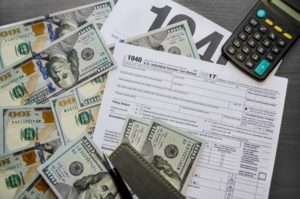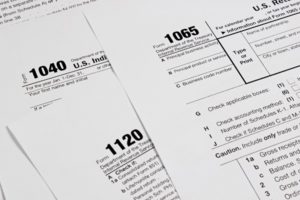FBAR Penalties Could Be Lessened Under New IRS Guidelines
According to the IRS, “if you have a financial interest in or signature authority over a foreign financial account, including a bank account, brokerage account, mutual fund, trust, or other type of foreign financial account, exceeding certain thresholds, the Bank Secrecy Act may require you to report the account yearly to the Department of Treasury by electronically filing a Financial Crimes Enforcement Network (FinCEN) 114, Report of Foreign Bank and Financial Accounts (FBAR).”
In other words, anyone who has money in a foreign bank account that exceeds $10,000 at any time during a given year will need to report that income to the IRS via an FBAR. However, recently, the IRS issued some new guidance regarding the penalties for those who don’t file an FBAR. According to reports, the IRS released a statement that noted: “For each year for which it is determined that there was a willful violation, examiners must fully develop and adequately document in the examination work papers their analysis regarding willfulness.”
For any case that involves willful violation for several years, it is up to the examiner to recommend the penalty length for each year the violation was determined to be willful. The IRS stated that typically the total penalty for the combined years under examination would not exceed ‘50 percent of the highest aggregate balance of all unreported foreign financial accounts during the years under examination.”
Meantime, an examiner can recommend more or less than the 50 percent threshold, but the total penalty cannot “exceed 100 percent of the highest aggregate balance.” There are obviously many possible scenarios and each case will be treated separately on its own merits and circumstances. The bottom line is you should still report your FBARs each year and report them on time. If you need help planning for and filing your FBAR then contact GROCO today at 1-877-CPA-2006, or by clicking here.
Why Are These Wealthy Taxpayers Angry About Taxes?
Why Are These Wealthy Taxpayers Angry About Taxes? By Alan Olsen In most cases, when you hear about someone being angry about taxes, you automatically assume they think they’re paying too much. Nearly all taxpayers think they pay too much, no matter their income level. But for the most part, wealthy taxpayers tend to be…
Last-Minute Tax Tips for High Net Worth Taxpayers
Last-Minute Tax Tips for High Net Worth Taxpayers If you’re one of those taxpayers that like to wait till April to file his or her taxes, then there are still some new things you should know about before you file. That’s especially true if you’re a high net worth individual or an investor. By now,…
What Should You Do if You Can’t Pay Your Tax Bill on Time?
What Should You Do if You Can’t Pay Your Tax Bill on Time? The 2019 tax season is in full swing and it’s already come with several changes and surprises. One of the biggest surprises is the number of taxpayers that are either getting a much smaller refund, or not getting a refund period. However,…
Could This Year’s Tax Refund Be Bigger Than Last Year’s?
Could This Year’s Tax Refund Be Bigger Than Last Year’s? If you’ve heard anything about the 2019 tax season, it’s probably that refund amounts are way down. That storyline has made a lot of news. And opponents of the Tax Cut and Jobs Act (TCJA) have definitely used it as “proof” that the changes were…




